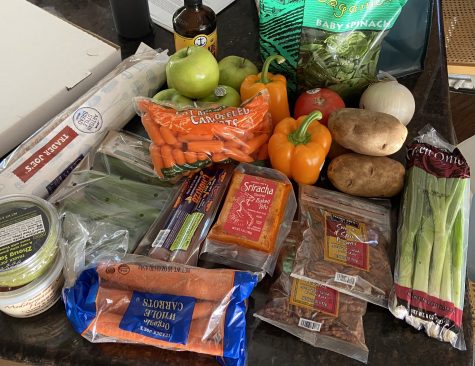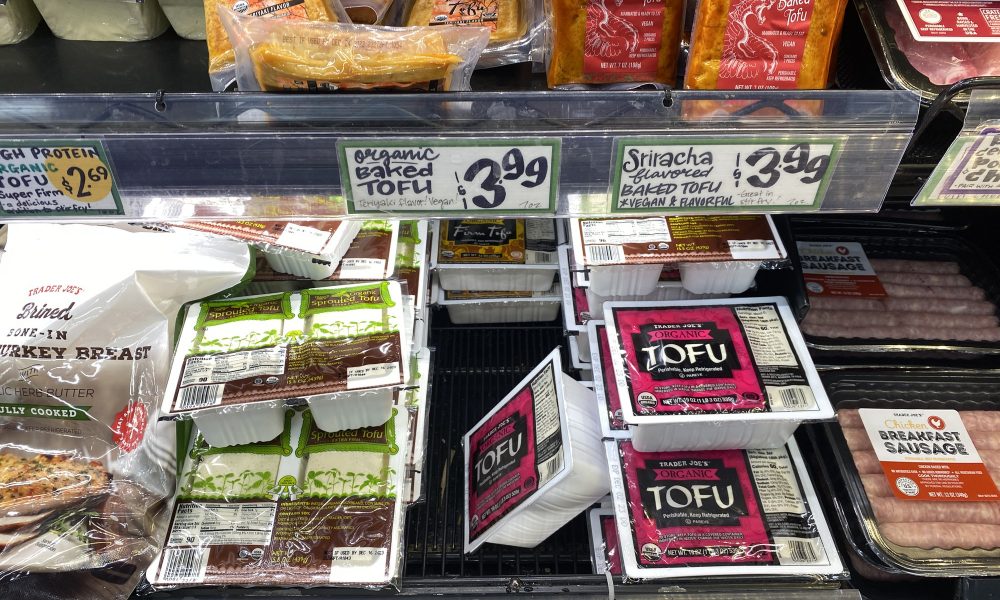When I was 10 years old, I spent the entire car ride to my grandparents’ house for Thanksgiving dinner thinking of ways to break it to them gently that the idea of eating turkey and ham was revolting to me.
Maybe I could tell them that my taste buds stopped working, that I’m allergic to meat or that all of my teeth had fallen out of my mouth, I thought.
After serious contemplation, I figured it out. I would lie and tell my grandparents that my parents were forcing me to be vegetarian, so I couldn’t eat meat ever again.
I broke the news to them when I arrived and played the childish victim for the rest of the night. My lie raised a few eyebrows, but that didn’t matter to me. I was 10 years old and got to eat the meatless Thanksgiving dinner that I wanted.
That was 10 years ago when I was at that point in my childhood where I thought intensely about everything in life. I would be eating meat, and while chewing, it would bewilder my brain to sit there and think about how I was eating cooked corpses.
From that Thanksgiving onward, I never ate meat again. The lie served as a good motivation tool to commit to vegetarianism.
I grew up on a small ranch in Calaveras County where I was surrounded by animals and wildlife, so I felt a strong connection to nature, plants, animals and the environment. My impulsive decision to go vegetarian at a young age was fueled by my compassion for Earth.
Choosing a vegetarian lifestyle for ethical reasons is a privilege. Research from the Economic and Social Research Institute shows that there are about 1.5 billion vegetarians on the planet, but only 5% of them exclude meat from their diets by choice.
Until my sophomore year of high school, I told people that I did it “for the animals.” I then took my high school’s AP environmental science course and that taught me the many ways that carnivorous diets negatively impact our environment.
As reported by the Food and Agriculture Organization of the United Nations, animal agriculture contributes 11% to 17% of global greenhouse gas emissions.
Destructive fishing practices destroy underwater biodiversity and the demand for concentrated livestock and fish stock requires an excessive amount of environmental resources. This results in exhausted land, pollution and other lasting effects.
People may choose vegetarianism for health benefits, religious reasons or other factors. For example, eliminating meat from your diet reduces the chances of cardiovascular complications, cancer and diabetes. Religions like Hinduism and Buddhism embrace plant-based eating.
This Thanksgiving will mark my 11th year as a vegetarian. Since moving out of my parent’s house, I have learned a lot of recipes and other ways to care for myself in line with vegetarianism.

It is important to remember that a vegetarian diet is not an excuse to constantly eat junk food. Mary Lyons, my nutrition professor last year, said that while foods like pizza, chips and cookies could technically be vegetarian, going plant-based is not a green light to entirely indulge in unhealthy foods.
Vegetarianism is a great way to play your part in the preservation of the world. While other environmental efforts are just as important, let’s not forget the major components of our ecological footprints, which include the foods that we eat.




